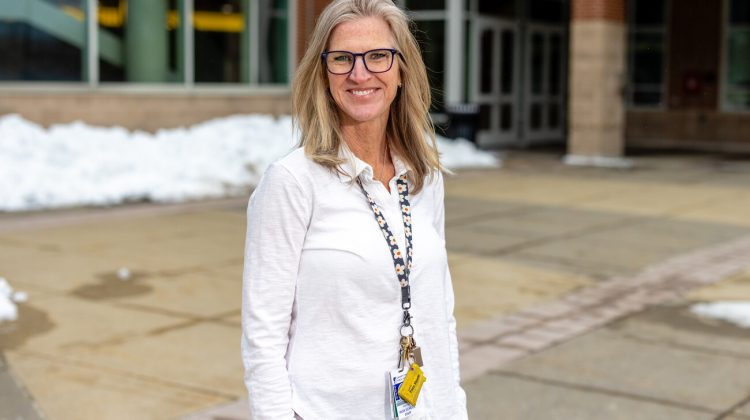SWAMPSCOTT — A lifeline has just been extended to students and residents throughout the town who may be struggling with mental health.
William James College, a university in Boston, is partnering with the town in order to increase outreach for those among community members who may be struggling or in need of a solid support network. In order to do that, the university launched its “Interface Referral Service.”
If a student or resident feels the need, they can call the service’s toll-free number, where they will have the chance to participate in a fifteen-minute intake conversation. The service will then help the caller connect with mental health providers. The service has a database with over 6,000 providers, according to the announcement on Facebook. It is completely free for all Swampscott residents, as well as any student who currently attends Swampscott Public Schools.
Lead Nurse for Swampscott Public School Emily Cilley took time on Wednesday morning to reflect on the new initiative and the work that goes into increasing outreach and communal awareness.
“For school-aged kids, I’d say depression and anxiety are most prevalent and exacerbated by social media. These disorders can be greatly disruptive and affect learning,” Cilley said. “For adults of all ages in our community, I’d say anxiety disorders affect many.” She added that from speaking mostly with parents, the stress of everyday life can be overwhelming, causing a domino effect on the people around them.
She wanted to take the opportunity to clarify that the referral service is free to the user and that once they get connected to the therapist that they have chosen, their insurance covers the visits. They may have a co-pay per visit as they would with any medical service, Cilley stated.
Cilley mentioned how a key element in the process is therapeutic treatment. “I can only speak from my own experience, so for me, having someone neutral to talk to helps me to better cope with difficult situations, helps me to self-regulate and simply makes me more self-aware,” she said.
Therapy is a crucial pillar of the problem, as it can help give people tools and methods to identify problems, and having the mechanisms in place to fix those issues is a necessary skill, according to Cilley.
“Everyone should have access to this when needed but find the many barriers to be overwhelming,” she said. “The Interface Referral Service assists people in getting access to the help they need. Interface does the grunt work.”
Cilley also took a moment to consider potential setbacks and challenges that can stand in the way of people easily finding the services and support they need. “The impact of Covid has been catastrophic for numerous reasons, and we are now facing a political divide that exacerbates our challenges in various respects,” she explained. “People often resort to social media to express their thoughts freely and without restraint, and it would be beneficial if they could find alternative avenues to alleviate their stress.”
“We recognize that some, maybe many, of our community members are struggling and we want to make it as easy as possible for them to get the assistance they need,” Cilley said. “This service hopefully alleviates a big barrier.”

